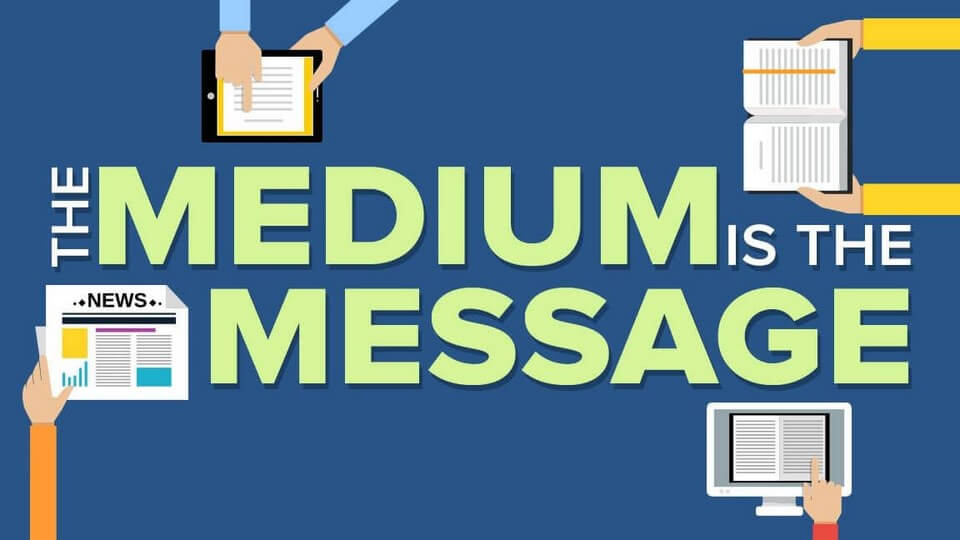
One of the first such claims about substantial change due to media was made by Marshall McLuhan, inventor of. The saying is often used in the context of media thought to be very influential on society, including forms of media that are thought to have changed-or to have the potential to change-how people experience the world.įor example, the expression may be used in the context of discussion of the social media platform Twitter and how its limitations on the character count of posts influences the way people communicate and perceive messages contained in those posts. From Medium Theory to the Second Media Age.

McLuhan argued that modern electronic communications (including radio. Marshall McLuhan, a Canadian philosopher of communication theory, developed the concept of the term ‘Global Village’ in two of his earliest booksThe Gutenberg Galaxy, in 1962, and Understanding Media: The Extension of Man, in 1964. in the cultural tradition was Marshall McLuhan.i A Canadian professor of English literature, McLuhan wrote that it was the nature of the communication. tionally associated with the Toronto School of Communication Theory and. In very simple terms, the expression implies that the form of communication being used-book, podcast, social media post, etc.-will affect the perception of the message that it delivers in some way (even, perhaps, if the same message is communicated with different media). A statement by Marshall McLuhan, meaning that the form of a message (print. Background Marshall McLuhan claimed his work was a footnote to Harold A.


The medium is the message is an expression coined by Canadian educator and theorist Marshall McLuhan that is often interpreted to mean that the forms and methods (the “media”) used to communicate information have a significant impact on the messages they deliver (including the meanings and other perceptions about those messages).


 0 kommentar(er)
0 kommentar(er)
